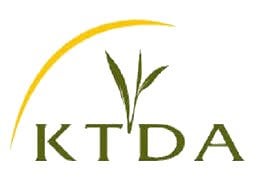 Tea growers across Kenya last week elected regional representatives to the powerful Kenya Tea Development Agency (KTDA).
Incumbents returned to the majority of the 109 seats but contested elections like that in the Njunjumu region led to the election of 31 new directors including Nicholas Mutwiri of Meru. The Njunjumu region includes the Knoro tea factories.
"My goals are to help farmers get improved earnings from their tea. I will also help in improving roads to ensure tea areas are accessible," he told The Standard of Kenya after being announced winner.
KTDA operates 63 factories in Kenya and buys tea from 500,000 growers cultivating 247,000 acres (100,000 hectares). A total of 73 former directors were re-elected of which 27 ran unopposed. The directors face increasing pressure to revive Kenya’s tea industry. Overproduction has led to steep price declines and the resulting low return forced the government to subsidize fertilizer expenses. Nandi Governor Cleophas Lagat called for a complete overhaul of the tea sector last week.
Farmers in the Ndia region have threatened to pull out of KTDA because of a requirement that directors hold at least 5,000 shares (bushes). Small growers want the threshold lowered to 1,000 shares (bushes).
Earnings for farmers fell to a five year low last year and KTDA’s gross fell 23% to 52.9 billion shillings ($580 million). Growers are contemplating uprooting buses due to declining earnings.
“
Tea growers across Kenya last week elected regional representatives to the powerful Kenya Tea Development Agency (KTDA).
Incumbents returned to the majority of the 109 seats but contested elections like that in the Njunjumu region led to the election of 31 new directors including Nicholas Mutwiri of Meru. The Njunjumu region includes the Knoro tea factories.
"My goals are to help farmers get improved earnings from their tea. I will also help in improving roads to ensure tea areas are accessible," he told The Standard of Kenya after being announced winner.
KTDA operates 63 factories in Kenya and buys tea from 500,000 growers cultivating 247,000 acres (100,000 hectares). A total of 73 former directors were re-elected of which 27 ran unopposed. The directors face increasing pressure to revive Kenya’s tea industry. Overproduction has led to steep price declines and the resulting low return forced the government to subsidize fertilizer expenses. Nandi Governor Cleophas Lagat called for a complete overhaul of the tea sector last week.
Farmers in the Ndia region have threatened to pull out of KTDA because of a requirement that directors hold at least 5,000 shares (bushes). Small growers want the threshold lowered to 1,000 shares (bushes).
Earnings for farmers fell to a five year low last year and KTDA’s gross fell 23% to 52.9 billion shillings ($580 million). Growers are contemplating uprooting buses due to declining earnings.
“ There is need for an overhaul of the management of the tea sector in the country including scrapping of the Kenya Tea board. Farmers should get value for their investment in the tea sector,” Gov. Lagat told The Standard.
He cited 19 levees against tea, a combination of taxes and “red tape” that prevent farmers from receiving “good earnings.”
“Of the 19, we know three genuine ones, which are the tax that goes to the exchequer, a cess for maintenance of infrastructure in tea-producing regions and levies for tea research. The others should be removed,” said the governor.
The country’s tea traders and export brokers complain of a 1% ad valorem tax on tea. They say the export tax makes Kenya vulnerable to unwarranted competition from other tea exporting countries.
In October Agriculture Cabinet Secretary Felix Koskei called the tax “crucial in facilitating the implementation of tea policies and infrastructural development.” He too blames “mismanagement at KTDA as a major cause of the current problems being experienced in the tea industry.”
There is need for an overhaul of the management of the tea sector in the country including scrapping of the Kenya Tea board. Farmers should get value for their investment in the tea sector,” Gov. Lagat told The Standard.
He cited 19 levees against tea, a combination of taxes and “red tape” that prevent farmers from receiving “good earnings.”
“Of the 19, we know three genuine ones, which are the tax that goes to the exchequer, a cess for maintenance of infrastructure in tea-producing regions and levies for tea research. The others should be removed,” said the governor.
The country’s tea traders and export brokers complain of a 1% ad valorem tax on tea. They say the export tax makes Kenya vulnerable to unwarranted competition from other tea exporting countries.
In October Agriculture Cabinet Secretary Felix Koskei called the tax “crucial in facilitating the implementation of tea policies and infrastructural development.” He too blames “mismanagement at KTDA as a major cause of the current problems being experienced in the tea industry.”
